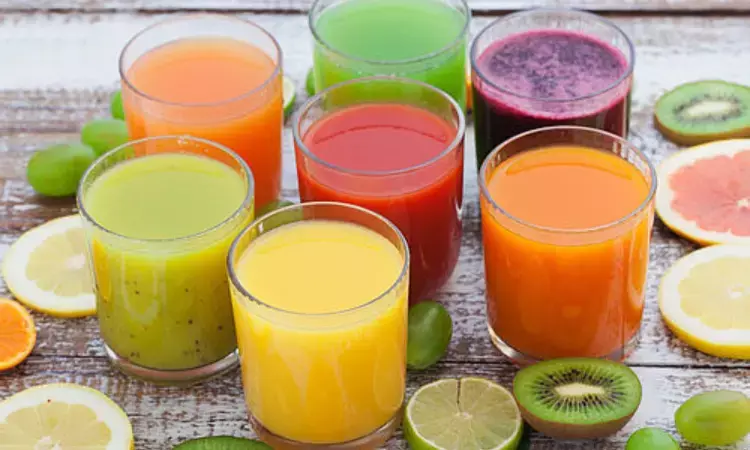- Home
- Medical news & Guidelines
- Anesthesiology
- Cardiology and CTVS
- Critical Care
- Dentistry
- Dermatology
- Diabetes and Endocrinology
- ENT
- Gastroenterology
- Medicine
- Nephrology
- Neurology
- Obstretics-Gynaecology
- Oncology
- Ophthalmology
- Orthopaedics
- Pediatrics-Neonatology
- Psychiatry
- Pulmonology
- Radiology
- Surgery
- Urology
- Laboratory Medicine
- Diet
- Nursing
- Paramedical
- Physiotherapy
- Health news
- Fact Check
- Bone Health Fact Check
- Brain Health Fact Check
- Cancer Related Fact Check
- Child Care Fact Check
- Dental and oral health fact check
- Diabetes and metabolic health fact check
- Diet and Nutrition Fact Check
- Eye and ENT Care Fact Check
- Fitness fact check
- Gut health fact check
- Heart health fact check
- Kidney health fact check
- Medical education fact check
- Men's health fact check
- Respiratory fact check
- Skin and hair care fact check
- Vaccine and Immunization fact check
- Women's health fact check
- AYUSH
- State News
- Andaman and Nicobar Islands
- Andhra Pradesh
- Arunachal Pradesh
- Assam
- Bihar
- Chandigarh
- Chattisgarh
- Dadra and Nagar Haveli
- Daman and Diu
- Delhi
- Goa
- Gujarat
- Haryana
- Himachal Pradesh
- Jammu & Kashmir
- Jharkhand
- Karnataka
- Kerala
- Ladakh
- Lakshadweep
- Madhya Pradesh
- Maharashtra
- Manipur
- Meghalaya
- Mizoram
- Nagaland
- Odisha
- Puducherry
- Punjab
- Rajasthan
- Sikkim
- Tamil Nadu
- Telangana
- Tripura
- Uttar Pradesh
- Uttrakhand
- West Bengal
- Medical Education
- Industry
Consumption of 100 per cent fruit juice can lead to weight gain in children and adults: JAMA

Canada: Findings from a recent meta-analysis published in JAMA Pediatrics support guidance to limit the consumption of 100% fruit juice to prevent the intake of excess calories and weight gain.
A systematic review and meta-analysis of 42 eligible studies, including 25 among adults (n = 268 095) and 17 among children (n = 45 851), revealed a positive association between 100% fruit juice intake and weight gain in children.
"Results of this meta-analysis provide evidence that 100% fruit juice consumption was associated with a small body mass index (BMI) gain in children," the researchers wrote.
They added, "Our meta-analysis of prospective cohort studies in adults provides evidence that daily consumption of 100% fruit juice was associated with gain in body weight, which is likely mediated in part by energy; however, this association was neither refuted nor supported by our meta-analysis of randomized clinical trials."
Intake of 100% fruit juice can be a convenient means to meet daily fruit recommendations and offers many nutrients in whole fruit, including essential antioxidants, vitamins, and polyphenols that can contribute to a healthy dietary pattern. However, concerns have been raised that intake of 100% fruit juice may lead to weight gain due to high amounts of energy and free sugars. These beverages contain little to no fibre versus the whole fruit form, resulting in greater ad libitum energy intake and low satiety.
Current evidence on fruit juice and weight gain has yielded mixed findings from clinical trials and observational studies. To fill this knowledge gap, Michelle Nguyen, University of Toronto, Toronto, Ontario, Canada, and colleagues aimed to synthesize the available evidence on 100% fruit juice consumption and body weight in children and adults.
For this purpose, they searched the online databases through May 18, 2023. The meta-analysis included prospective cohort studies of at least 6 months and randomized clinical trials (RCTs) of at least two weeks evaluating the association of 100% fruit juice with body weight change in children and adults. In the trials, fruit juices were compared with noncaloric controls. Data were pooled using random-effects models and presented as β coefficients.
A change in body mass index (calculated as weight in kilograms divided by height in meters squared) was assessed in children and a change in body weight in adults.
The analysis included 42 eligible studies, including 25 among adults (6 cohorts; 19 RCTs; 268 095 adults; median age among cohort studies, 48 years; median age among RCTs, 42) and 17 among children (17 cohorts; 0 RCTs; 45 851 children; median age, 8 years).
Based on the meta-analysis, the following inferences were made:
- Among cohort studies in children, each additional serving per day of 100% fruit juice was associated with a 0.03 higher BMI change.
- Among cohort studies in adults, studies that did not adjust for energy showed greater body weight gain (0.21 kg) than studies that did adjust for energy intake (−0.08 kg).
- RCTs in adults found no significant association of assignment to 100% fruit juice with body weight but the CI was wide (MD, −0.53 kg).
"Our results are in support of public health guidance to limit the consumption of 100% fruit juice to prevent obesity and overweight," the authors concluded.
Reference:
Nguyen M, Jarvis SE, Chiavaroli L, et al. Consumption of 100% Fruit Juice and Body Weight in Children and Adults: A Systematic Review and Meta-Analysis. JAMA Pediatr. Published online January 16, 2024. doi:10.1001/jamapediatrics.2023.6124
Dr Kamal Kant Kohli-MBBS, DTCD- a chest specialist with more than 30 years of practice and a flair for writing clinical articles, Dr Kamal Kant Kohli joined Medical Dialogues as a Chief Editor of Medical News. Besides writing articles, as an editor, he proofreads and verifies all the medical content published on Medical Dialogues including those coming from journals, studies,medical conferences,guidelines etc. Email: drkohli@medicaldialogues.in. Contact no. 011-43720751


